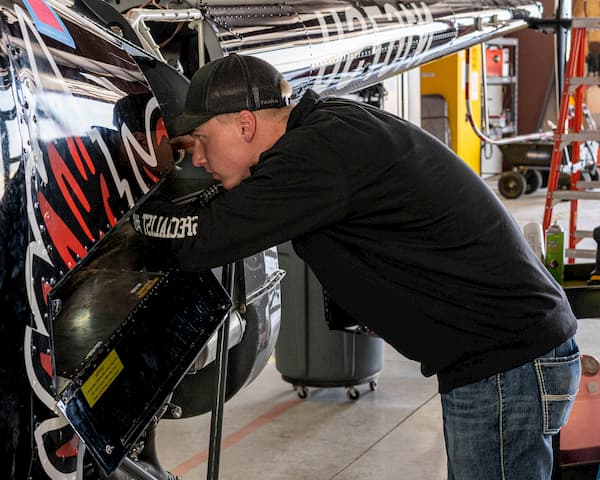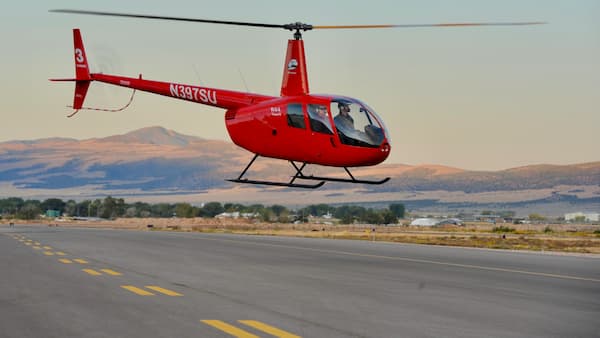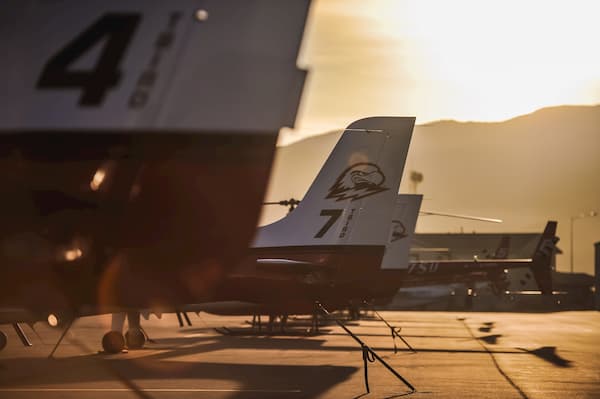Why Age Doesn’t Matter When Getting Your Pilot’s License
Posted: April 15, 2021 | Author: Jaidyn Crookston | Read Time: 8 minutes
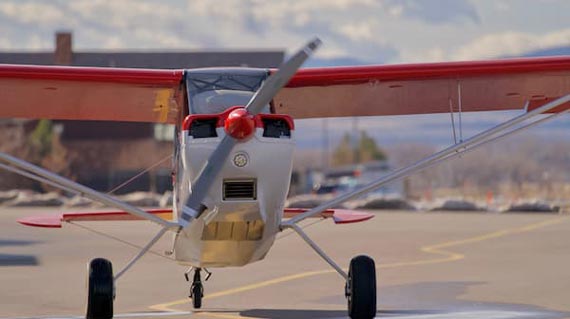 If flying is your dream, but you're wondering if you're too old (or young) to start training, this guide is for you. Maybe you’ve always loved airplanes or helicopters and just never got around to becoming a pilot, or maybe your love of aviation came later in life. Either way, it isn’t too late to get your pilot’s license.
If flying is your dream, but you're wondering if you're too old (or young) to start training, this guide is for you. Maybe you’ve always loved airplanes or helicopters and just never got around to becoming a pilot, or maybe your love of aviation came later in life. Either way, it isn’t too late to get your pilot’s license.
The only caveat to obtaining your pilot’s license is whether or not you can pass the FAA medical exam. This medical exam determines whether you’re physically and mentally fit to fly an airplane or helicopter. If you’re able to pass this exam, then your age won’t stop you from becoming a pilot.
For more information on the FAA medical exam and to see a list of disqualifying conditions, you can visit their website.
You may be wondering whether you’ll be alone in pursuing aviation later in life, but this is definitely not the case. In fact, retired veterans make up a significant portion of flight school students. This is because many veterans are able to use their GI Bill® to cover most of the flight training costs. If you’re a veteran and want to start a career in aviation (or get a license just for fun), then finding a flight school that accepts full VA Benefits should be a top priority.
Even if you aren’t a veteran and want to become a pilot, finding a flight school that caters to veterans may be to your advantage, since you’ll be with more people your age and may feel as though you fit right in.
As long as you’re healthy and fit to fly, age truly doesn’t matter. In fact, the oldest known airplane pilot, Ernie Smith, was 101 years old when he flew his last plane. Whatever your reason for wanting to get your license, whether it be because you want to start working as a pilot or just because you want to rent a plane and fly around, it’s never too late to start.
Being older than many of the other students may actually give you an advantage. You have more life experience than the younger students and you can draw on that experience to help you in your training. A big part of flying helicopters or airplanes is being able to make quick decisions and follow correct procedures. Following procedures and handling situations correctly will keep you and your passengers safe. Following directions and making quick decisions may be easier for you because of previous work and life experience you’ve had, especially if you’re a veteran.
There are dozens of flight schools around the country, so finding the right one for you may seem harder than it actually is. To learn more about how to choose the right flight school, take a look at this article.
Once you’ve taken the leap and registered for flight school, you can start your training to become a pilot.
Tips for Tackling Flight School as an Older Student
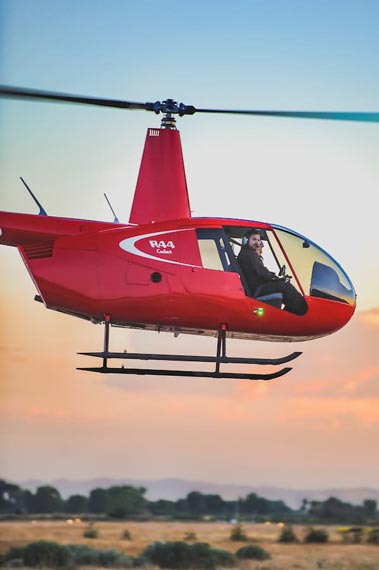 You need to be dedicated. Flight school is demanding and takes a lot of work. Without the proper motivation, it will be tempting to drop out, especially for students who are older. However, if you stick with it and do your best, you’ll be flying thousands of feet above the ground as pilot-in-command before you know it!
You need to be dedicated. Flight school is demanding and takes a lot of work. Without the proper motivation, it will be tempting to drop out, especially for students who are older. However, if you stick with it and do your best, you’ll be flying thousands of feet above the ground as pilot-in-command before you know it!
Know the industry. The world of aviation is big and it can be confusing for someone just entering it. By learning about the industry and knowing what you’ll have to do beyond flight school, you’ll be much better prepared once you’ve graduated. Once you’re done with flight school you’ll need to build up your flight hours until you have enough to get a high-paying job. Chances are that you’ll start your career by working a low-paying job such as a flight instructor or tour pilot. From there, you can work your way up to earning a high salary.
Be prepared to struggle. Flight school is hard. There is a lot to know and remember for your ground labs, flight labs, and exams. As a student, you’ll be studying a lot and may have little free time. If you know this before going into flight school, it will come as no surprise and you’ll be able to more easily handle the workload.
Not everyone is a natural pilot. Some students you’ll be training with may seem to be natural pilots. This can be frustrating if you’re struggling even to learn simple maneuvers. It’s completely fine to struggle with flying for the first little while. As long as you push through your frustration and don’t let the setbacks worry you, you’ll get the hang of things. Soon, you’ll master all the maneuvers and will look back and laugh at your previous struggles.
Budget carefully and make sure you get the most for your money. Let’s face it, flight school is expensive. If you aren’t able to use VA Benefits to pay for school, then it will fall on you to seek federal financial aid, student loans, and scholarships. No matter what your financial situation, you’ll need to be careful about the way you spend your money and about what flight school you’re paying to teach you to fly. Do your research before committing to a flight school and make sure that whatever school you choose will help you succeed as a pilot and will take your education seriously. To learn more about how to pay for flight school, read this article.
Plan ahead. Flight school is only one part of becoming a pilot. It’s best to know what you want to do with your license before you begin training. Do you want to work as a pilot and earn money? Or do you just want your license so you can rent or buy a plane or helicopter and have a fun weekend activity for the family? If you want to earn money as a pilot, then you need to learn about all the requirements and how the aviation job industry works. Going into flight school without a plan will make things more difficult for you later on and is something that should be addressed now.
Be realistic. It’s easy to go into flight school thinking that you’ll breeze right through and understand everything. However, for almost all students this isn’t the case. Make sure that you’re setting achievable goals rather than large ones that will leave you disappointed in the end. For example, don’t expect to earn your license in just a few months with little hassle. Some students are able to do this, but for many, flight school can take years, especially if you’re training with a university flight school and earning a degree.
If you follow these tips as you enter flight school and beyond, then your dreams will soon become a reality. Before long, you’ll graduate from flight school and become a fully licensed, extremely qualified pilot.
Younger Students Can Learn to Fly as Well
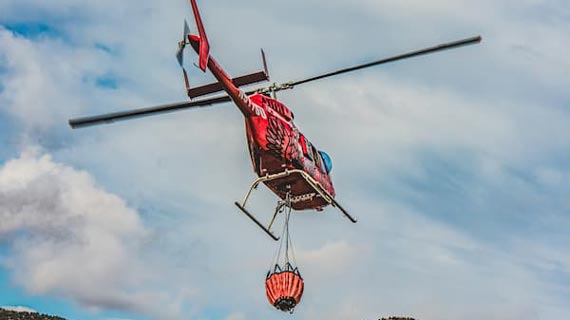 These tips also apply to younger students and bring us to the other end of the scale. We’ve established you aren’t too old to become a pilot, but is it possible to be too young?
These tips also apply to younger students and bring us to the other end of the scale. We’ve established you aren’t too old to become a pilot, but is it possible to be too young?
There are a few rules when it comes to the minimum age limit of a pilot, but for the most part, anyone is able to fly a plane or helicopter.
Anyone can fly a plane or helicopter as long as there’s a licensed pilot in the cockpit to take control if need be. However, you must be 16 years old before you’re able to take a solo flight and 17 years old before you can earn a private pilot’s license. You must then be at least 18 years old to earn a commercial pilot’s license. The commercial license is what qualifies you to work and earn money as a pilot.
You must pass an FAA medical exam no matter what age you are. If you’re unable to pass this exam for any reason, you won’t be able to become a pilot. If you can’t pass the exam but still want to be involved in the aviation world and work around aircraft, consider becoming an A&P Mechanic or working in one of the many other jobs that are available around airports or flight schools.
If you have any questions about how your age might affect you becoming a pilot, contact SUU Aviation. Southern Utah University Aviation has dozens of retired veterans and older students currently in our flight program, as well as many younger students, so we’ll be able to answer any questions you may have. To learn more about our program, see our facilities, and meet our staff, come take a tour and see for yourself how amazing it would be to become a pilot.
Produced by SUU Aviation
The university's fleet includes 16 airplanes, 23 helicopters by the end of 2020, and state-of-the-art maintenance training facilities. SUU Aviation offers advanced and relevant flight training in the safest and most efficient way possible. The program continues to be on the cutting edge of the industry, training tomorrow's aviation leaders. With SUU Aviation, you’ll get a high-quality education and have the experience needed to get a job in the aviation industry.
This article was published more than 3 years ago and might contain outdated information or broken links. As a result, its accuracy cannot be guaranteed.
Tags: Aviation


